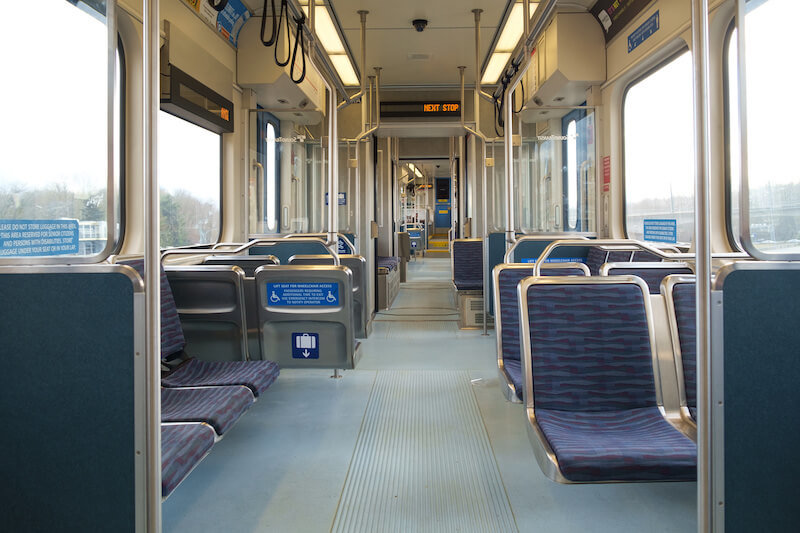Calgary vs. Vancouver: How to Choose Between Living in Vancouver or Calgary
Posted by Justin Havre on Tuesday, February 7th, 2023 at 8:56am.

Although they're separated by nearly 1,000 kilometres, Vancouver and Calgary have quite a few things in common, but they also differ in several important ways.
While Vancouver is a coastal city, Calgary has an inland location in Alberta. Its population exceeds 1.3 million residents, and Calgary's climate features colder but drier and brighter conditions. It's known for rodeo events, winter sports and the Calgary Tower. Vancouver experiences warm, frequently wet weather. Around 662,000 people live in this British Columbia city famous for its seaside landscapes and prosperous film industry. For anyone considering moving to Calgary or Vancouver, this guide will help to highlight the main similarities and differences.
Calgary Economy vs. Vancouver Economy
These two cities play major roles in Canada's economy. Both have significant manufacturing and transportation industries. However, Vancouver differs from Calgary because of its coastal location. It benefits from more significant tourism and international trade, but residents pay higher prices for many products and services.
Cost of Living
The cost of living in Calgary is low compared to other major North American cities. One person might spend around $850 per month on food, transportation, and utilities. When purchasing a home, each square meter of living space costs about $2,800 to $3,200. Single-family dwellings generally sell at lower prices than condos that supply equivalent interior space. Buyers pay almost $640,000 for average residential properties. Due to their smaller sizes, townhomes cost around $350,000.
Is Vancouver more expensive than Calgary? Although its transportation and utility bills remain somewhat lower, locals spend about three times more on housing. The average home price stands at nearly $1.41 million. Vancouver residents also face slightly higher food prices. Both groceries and restaurant meals cost more. On the other hand, there's little difference in local healthcare expenses. The bottom line is that Vancouver ranks among the five most expensive Canadian cities.
Job Market

Calgary continues to create more employment in a variety of industries, which contributes greatly to the strength of Calgary's economy. Growing industries include recreation, hospitality, medical, transport and retail. Companies created over 18,000 new technical and professional careers. Meanwhile, Calgary's unemployment rate fell by 3%, and average hourly wages went up. Weekly earnings grew by 5.5%.
Vancouver residents also benefit from a strong labour market. During the same year, unemployment fell, and job vacancies increased. The tech and construction industries advertised numerous openings. Vancouver has become a significant hub for producing movies, TV shows, animation and video games. Related businesses employ more than 20,000 people. Studios in the city create 120 television series and motion pictures during an average year. Vancouver's proximity to the Pacific Ocean also creates employment opportunities.
Top Industries & Biggest Corporations
Calgary has a diverse economy with significant financial, health, tech, insurance, transport, film, manufacturing and tourism industries. More than 3 million tourists travel to Calgary in a typical year. Multiple major petroleum companies maintain headquarters there. Among others, they include Suncor and Cenovus energy. The area is also home to Imperial Oil, Canadian Pacific Railway and Shaw Communications. Calgary has more corporate headquarters than most large cities in Canada. These offices provide numerous high-paying career opportunities.
Vancouver's earliest industrial facilities included sugar refineries and sawmills. It began exporting products to the eastern U.S. and Western Europe after the Panama Canal opened. Today, the city's seaport serves fishing, cargo vessels, and cruise lines. Vancouver attracts more than 10 million tourists annually. Other significant industries include entertainment, mining, forestry and manufacturing. Factories produce goods ranging from boats to sawmill machinery.
Both cities have thriving economies that benefit from major airports and rail lines. The energy industry maintains a bigger presence in Calgary, while international shipping and fishing hold greater importance in Vancouver. Calgary provides opportunities for advancement to high-level corporate jobs in the energy and telecom fields.
Calgary Commutes vs. Vancouver Commutes
Vancouver and Calgary have busy streets, but most residents work locally and don't need to travel long distances. Numerous people walk or bike to workplaces in both cities. Calgary has long paths and enclosed walkways for pedestrians. Vancouver supplies bicycle lanes spanning more than 300 kilometres. Nonetheless, the majority of people commute by car.
Traffic Patterns and What to Expect During Rush Hour
Driving in Calgary is typically a breeze, and an average commuter spends about 25 minutes on the city's grid-based streets each weekday morning and evening. The area experiences less congestion than most Canadian cities. Traffic usually turns heavier from 7:00–9:30 a.m. and 3:30–5:30 p.m. Stoney Trail and Deerfoot Trail become especially busy at rush hour. Most locals drive for 15–30 minutes, and the vast majority have commuting times under 45 minutes. Commuting to Calgary from the luxury homes in Chestermere typically takes less than 30 minutes.
Vancouver streets become busiest around 8:00 a.m. and 5:00 p.m., with the worst traffic typically occurring on Thursdays. The greatest number of motorists travel for 15–30 minutes, but nearly as many have commutes that take more than a half-hour. Trips last about 30–40% longer in rush-hour traffic. While it has fewer traffic jams than Los Angeles, Vancouver endures more congestion than any other major city in Canada.
Public Transportation

Residents can avoid the hassles of traffic and parking by using public transit. Calgary's public transportation system features 46 light rail stations, over 6,000 bus stops and over 1,000 vehicles. Local train tracks span 118 kilometres. Nearly 40,000 residents commute via mass transit, including about half of those who commute to downtown Calgary. Many rail and bus stations supply abundant parking for motorists.
Around 53,500 people travel to their workplaces using Vancouver's public transportation system. TransLink operates trains, diesel buses and ferries. The SkyTrain light rail service connects suburban areas like Coquitlam and Burnaby to the downtown district. Commuters also ride a train known as the West Coast Express, and multiple ferries carry passengers to and from North Vancouver.
Best Suburbs in Each City for Short Downtown Commutes
While it takes less than 15 minutes to reach downtown Calgary from the Marlborough or Inglewood neighbourhoods, locals can move to the suburbs without facing long commutes. Residents of the lakeside Kinniburgh neighbourhood of Chestermere only need to drive on the Trans-Canada Highway for 20–25 minutes. Buses also serve this scenic community. The Ravenswood neighbourhood in Airdrie offers an alternative with excellent mountain views and a golf course. Drivers can reach Calgary from homes in Airdrie in roughly 24 minutes.
The Burnaby suburb has a population of nearly 250,000 and provides relatively quick access to downtown Vancouver. Commuters spend around 27 minutes on the road. Burnaby is home to Simon Fraser University and various manufacturing plants and warehouses. Individuals who prefer island living might move to Richmond instead. It takes just over 30 minutes for locals to reach the downtown area. Richmond features lengthy trails, vast parks, seaports and a major airport.
Calgary and Vancouver have extensive mass transit networks serving the cities and their suburbs. Unfortunately, Vancouver commuters face more persistent traffic congestion. This increases fuel costs while lengthening car and bus commutes, especially during rush hour.
What to Do in Calgary vs. What to Do in Vancouver
After they finish working and commuting, residents of both cities can find plenty of fun activities to enjoy. The choices differ in some ways due to different locations and climates. Many popular pastimes in Vancouver involve the ocean. They range from swimming to whale watching and scuba diving. Indoor options like live music become more appealing on rainy days. Meanwhile, Calgary's best outdoor activities are supported by its sunny weather, including cycling, hiking, picnicking and more. Attractive destinations include Prince's Island Park and Inglewood Bird Sanctuary.
Outdoor Activities

Calgary maintains lengthier walking and biking paths than any other North American city. They measure nearly 1,100 kilometres long, and Calgary's best walking and jogging trails even attract visitors from outside the area. Trails can be found at the bird sanctuary, Glenmore Reservoir and many other locations. Cyclists may rent bikes from the University of Calgary's Outdoor Centre. In addition to bike trails, local parks provide sports fields, playgrounds and picnic areas. Popular places for picnicking include North Glenmore Park and Bowness Park, and Calgary's neighbourhoods with outdoor skating rinks are wintertime hot spots.
The Calgary area also offers these outdoor activities:
- Rafting on Elbow and Bow rivers
- Boating in Glenmore Reservoir
- Hiking in the foothills
Vancouver residents can spend some time on the sand when the weather cooperates. Local beaches provide great views of nearby islands and mountains. Kitsilano sometimes becomes crowded, but some beaches remain relatively quiet (like Locarno). Visitors may watch the sunset or have picnics. Residents who favour hiking can find a steep 2.9-kilometre trail at Grouse Mountain. Reaching the summit or returning to the base via the gondola is also possible.
Sports
Hockey remains the most popular spectator sport in Calgary. The city has two major teams, the Calgary Flames of the National Hockey League and the Calgary Hitmen (a major junior team). Soccer, lacrosse and football teams call Calgary home as well. Every year, the Stampede rodeo festival takes place in July and attracts more than a million attendees. Locals love to hit the links at Calgary's best golf courses from late spring through early autumn. Popular golf clubs include McKenzie Meadows and Elbow Springs. Additional sporting venues range from rowing clubs to climbing centres and ski resorts.
Vancouver sporting events frequently happen at General Motors Place or B.C. Place stadiums. The city hosts baseball, soccer, hockey and football games. One of the most well-known teams is the Vancouver Canucks. Bike races and marathons also take place in Vancouver. Although this area receives comparatively little snow, skiers can find it on nearby coastal mountains. However, Calgary provides quicker access to ski resorts.
Nightlife
Both cities offer an assortment of indoor nighttime events and activities. Calgary features large nightclubs, such as the Cowboys Dance Hall and The Palace. Live music events occur throughout the week at The Blues Can. Visitors enjoy food and drinks while discovering Alberta-based performers. Further nightlife options include bars and pubs with an assortment of unique themes, so you'll never lack things to do in Calgary. The city is also home to over 20 casinos with card games and slot machines.
Likewise, Vancouver boasts a wide variety of bars, nightclubs and casinos that suit many tastes. Live music events range from small restaurant performances to huge stadium concerts. Audiences hear jazz, country, rap, rock, and more. Other shows take place in historic theatres and ballrooms. Famous bands worldwide have performed at the Commodore Ballroom on Granville Street.
Vancouver vs. Calgary: Where Should Your Home Be?
To sum it up, Calgary offers considerably lower living expenses than other major cities across the country. Furthermore, Calgary's best neighbourhoods offer a quality of life that can rival that of any city. Its weather is sunnier and less rainy than Vancouver, but not as warm. Both cities have prosperous economies. While Vancouver attracts more tourists, Calgary is home to more energy companies. The two cities supply numerous public transit options and strive to accommodate residents who walk or ride bicycles.
Deciding on a city to buy a home in is a deeply personal thing, so take this information and be sure to visit each city you're considering to get a good feel for it!
If you're looking for the perfect Calgary home, contact Justin Havre with eXp Realty and Calgary Homes at (403) 217-0003 to get in touch with a local Calgary real estate agent and discover your new dream home today.

